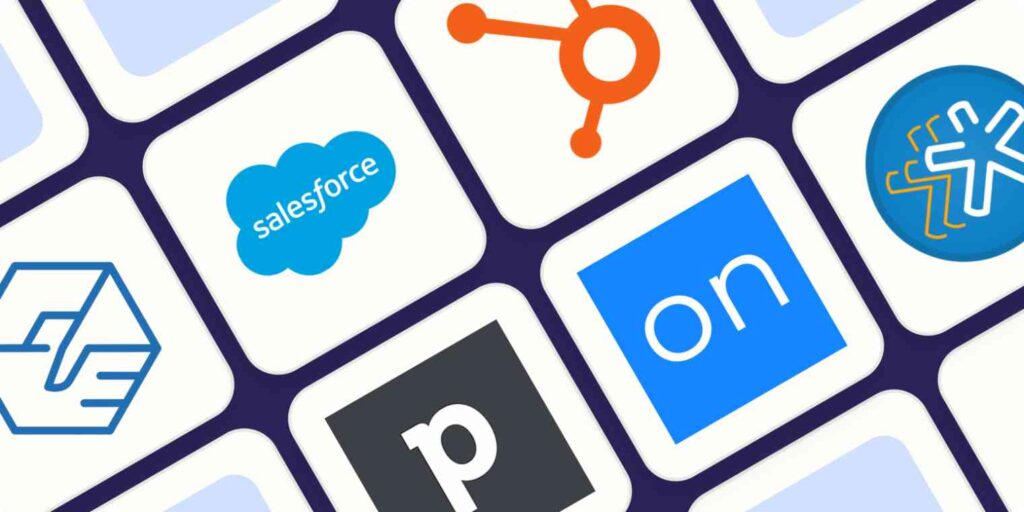How to Choose the Right CRM Tool for Your Business
Customer Relationship Management (CRM) tools help businesses track and manage customer interactions, sales, and data. Choosing the right CRM can transform your customer relationships and boost sales performance. This guide walks you through the key factors to consider when selecting a CRM system that matches your business needs.

Essential Features to Consider
The backbone of any CRM system lies in its features. Understanding which features matter most to your business helps narrow down the options. Some features might seem attractive but may not serve your specific needs. Focus on tools that solve your current challenges and support future growth.
Contact Management
- Customer details and history
- Communication tracking
- Notes and interaction logs
- Custom fields for specific data
- Contact segmentation options
Sales Tools
- Pipeline management
- Deal tracking
- Sales forecasting
- Quote generation
- Task automation
Reporting Capabilities
- Custom dashboards
- Sales performance metrics
- Customer behaviour insights
- Team activity reports
- Revenue tracking
Understanding Your Business Needs
Before exploring CRM options, take time to assess your business requirements. This step prevents the common mistake of choosing a system with unnecessary features or missing crucial functionality. Your business size, industry, and growth plans should guide your selection.
Team Size and Structure
- Number of users needed
- Department access requirements
- Team collaboration features
- Training requirements
- User permission levels
Industry-Specific Requirements
- Specialised features
- Compliance needs
- Data security standards
- Customer communication methods
- Integration requirements
Technical Considerations
The technical aspects of a CRM system can make or break its success in your organisation. A system that doesn’t integrate well or proves too complex to use will face adoption challenges. Consider both current and future technical needs.
Integration Options
- Email platforms
- Marketing tools
- Accounting software
- Social media channels
- Website and e-commerce systems
Ease of Use
- User interface design
- Learning curve
- Mobile access
- Customisation options
- Setup complexity
Cost Analysis
Understanding the full cost picture helps prevent budget surprises later. CRM pricing often includes more than the basic subscription fee. Consider both immediate and long-term costs to make an informed decision.
Pricing Structures
- Per-user pricing
- Feature-based tiers
- Monthly vs annual costs
- Implementation fees
- Training expenses
Hidden Costs
- Data migration
- Additional user licences
- Premium support
- Custom development
- Storage upgrades
Popular CRM Options
The CRM market offers solutions for every business size and type. These options represent some of the most widely-used systems, but remember that popularity doesn’t always equal the best fit for your needs.
For Small Businesses
- HubSpot CRM: Free starter option
- Zoho CRM: Affordable with good features
- Freshsales: User-friendly interface
- Pipedrive: Sales-focused solution
- Monday.com: Visual project management
For Medium Businesses
- Salesforce: Market leader with extensive features
- Microsoft Dynamics: Deep Microsoft integration
- Sugar CRM: Flexible customisation
- Zendesk Sell: Customer service focus
- Insightly: Marketing automation included
Implementation Planning
A successful CRM rollout requires careful planning and preparation. Many CRM projects fail not because of the tool itself, but due to poor implementation. Create a detailed plan that considers all aspects of the transition.
Timeline Considerations
- Data migration schedule
- Team training periods
- System setup time
- Testing phase
- Launch preparation
Resource Requirements
- Implementation team
- Training resources
- Technical support
- Budget allocation
- Staff time commitment
Making Your Decision
The decision-making process should be methodical and thorough. Rushing this stage often leads to choosing the wrong system. Take time to evaluate each option against your requirements and involve key stakeholders.
Evaluation Process
- List your must-have features
- Set a realistic budget
- Request product demos
- Read user reviews
- Test free trials
Red Flags to Watch
- Poor customer support
- Limited integration options
- Complex pricing structures
- Outdated interfaces
- Lack of mobile access
Best Practices for Success
Following proven best practices increases your chances of successful CRM implementation. These guidelines come from real-world experiences of businesses that have gone through the selection process.
Before Purchase
- Document your requirements
- Involve key stakeholders
- Compare multiple options
- Check references
- Plan for growth
After Purchase
- Schedule regular training
- Monitor user adoption
- Track system performance
- Gather team feedback
- Plan regular reviews
Security Considerations
Data security cannot be an afterthought when choosing a CRM. Your customer data represents one of your most valuable assets. Ensure any system you choose meets modern security standards and compliance requirements.
Data Protection
- Access controls
- Encryption standards
- Backup systems
- Compliance features
- Privacy settings
System Security
- Authentication methods
- Data storage location
- Security certifications
- Update frequency
- Incident response plans
Conclusion
Selecting the right CRM requires careful consideration of your business needs, technical requirements, and budget constraints. Take time to evaluate different options and involve your team in the decision-making process. Remember that the best CRM system grows with your business and supports your long-term goals.
Start with a clear understanding of your needs, test multiple options, and choose a solution that offers the right balance of features, usability, and value. Regular reviews and updates ensure your CRM continues to meet your business requirements as you grow.





